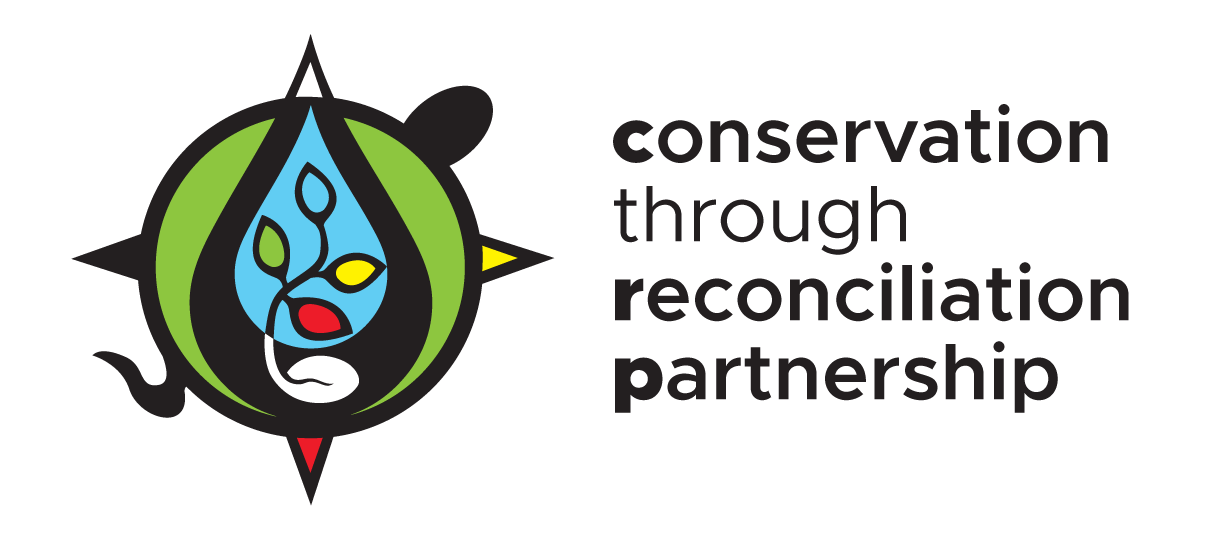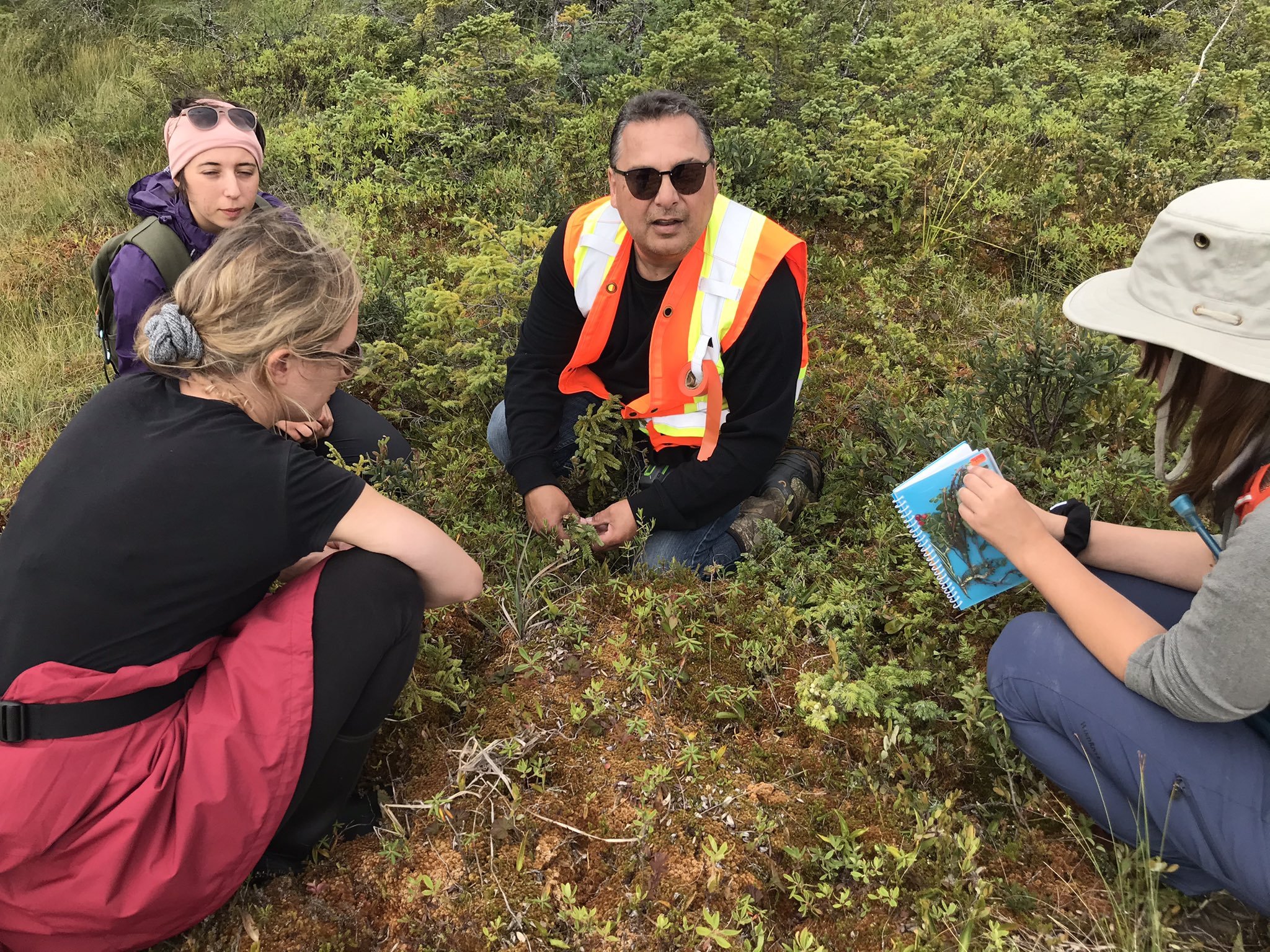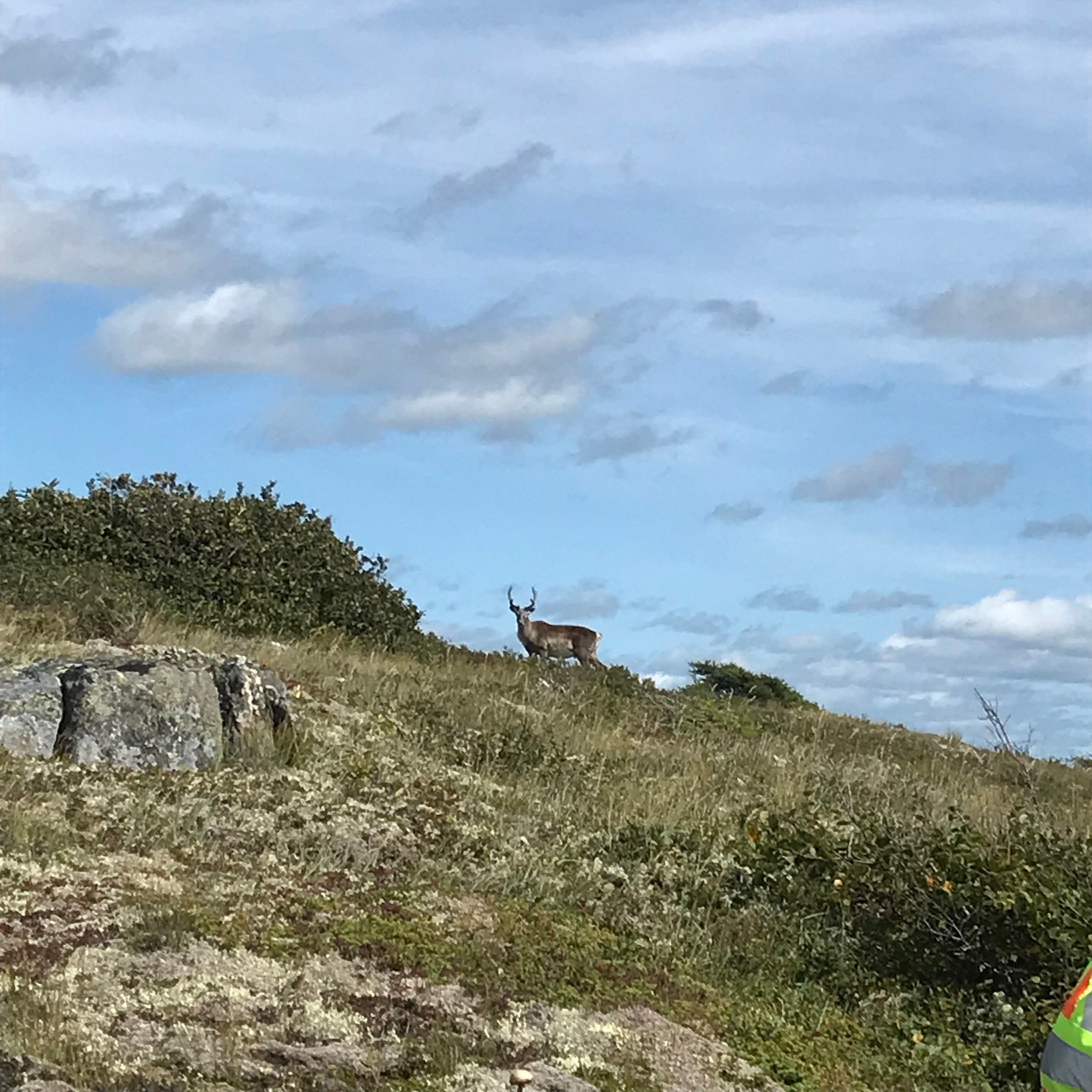Notes from the Field: Miawpukek First Nation Land Guardians
By Jessica Lukawiecki
May 26, 2022
The view of the ocean from a hilltop in Miawpukek First Nation’s traditional territory. (Photo Credit: Jessica Lukawiecki)
I am sitting in a four-wheeler ATV beside Andy Joe, Miawpukek First Nation band member and lead Indigenous Guardian, several miles in the interior of Miawpukek’s traditional territory. By my calculations, we are right in the very centre of the island now called Newfoundland.
The day is cool but sunny, characteristic of central Newfoundland’s climate at the tail end of summer. We’ve long ago lost cell service, and my travel companions rely on GPS systems and memory to reach our destination.
Periodically Andy cuts the engine to scan the horizon for caribou, a culturally significant species for Miawpukek’s people. I tell Andy how I’ve never actually seen a caribou, having only heard about their dwindling numbers across the country. Andy promises that before my visit to his territory is through, I’ll see one of the animals so critical to his people’s culture and livelihoods.
We carry on our way, with three other Indigenous Guardians – Dave, little Ray, and Greg – to check on several lichen monitoring sites that they had set up the previous year, to monitor rare types of lichen - like boreal felt lichen - a vulnerable species in Newfoundland and Labrador.
Indigenous Guardian Andy Joe checks in on a lichen monitoring site. (Photo Credit: Jessica Lukawiecki)
Andy and his team are Indigenous Guardians, part of a network across the country who act as the eyes and ears on their territories. They are employed, largely through federal funding, to actively manage and monitor their traditional territory. As land Guardians, they are responsible for monitoring animals that are endangered and/or culturally significant, such as bats, muskrat, moose, caribou, several species of birds, and pine martin.
They also have a deep knowledge of the land that is constantly evolving as they learn through practice and knowledge transmitted from the Elders in their community. They spend their days constantly moving across the territory, setting up hunting lodges, travelling by ATV and snowmobile to species monitoring sites, and recording sightings of endangered species on GPS to learn about their distribution and movement. They are the Guardians of the land, and they tell me several times throughout our visit how grateful they are for this opportunity to learn about their traditional culture and protect the lands of their people.
Fieldwork is a pivotal moment in any Ph.D. journey. It is the moment when all of that time spent deep in the literature and archives, all of those theoretical class discussions, all of the preparation and planning, come to life in a dynamic, here-and-now, larger-than-life interaction involving real people’s lives, livelihoods and experiences.
For me, this moment, and all the emotion that comes with it, was heightened by the ever-present shadow of the global pandemic. For the better part of two years, not only had I been studying, but I had also been doing it remotely – interacting sparsely (if at all) with my peers, family and friends, and spending most of my time with my partner and our dog Phoebe.
The decision to move to Newfoundland on the off-chance that I could do fieldwork in-person with Miawpukek in the summer of 2021 had been a gamble, one that involved several weeks of quarantine in different provinces, over two thousand miles of driving, a new apartment and two vaccinations. I did not know what to expect, when in late August, I was approved and invited to spend three weeks as a guest in the field with Miawpukek’s four Indigenous Guardians.
I was honoured, but I was also nervous, not knowing how I would be affected by almost two years of near isolation. And not knowing how this might impact the interactions, relationship building and interviews that I was about to embark on for three weeks.
With each passing physically demanding but energizing day, the cloud of the pandemic seemed to lift a little more for me. Each day was different. Each conversation was building the relationship between myself and the Guardians - casual conversations taken place around the truck at lunch eating fresh surf clams and wagon wheels, and drinking black coffee.
As we trekked through the boggy heathlands each day, Andy would call me over – “Jesse, come see this!” – and show me muskrat monitoring sites, bird call trackers, edible plants and roots – all kinds of wonders that brought his territory to startling life. I learned how important certain species, like beaver, muskrat, and caribou, are for Miawpukek’s people, but how these relationships have suffered from cultural severance associated with colonialism and forced schooling.
Jessica Lukawiecki (me) standing beside a muskrat monitoring site in Miawpukek First Nation’s traditional territory. (Photo Credit: Jessica Lukawiecki)
I learned that bear meat can be delicious, but will taste different depending on what it is eating, whether that be berries or salmon or old scraps of garbage. I learned that Miawpukek’s people are not allowed to hunt and fish on their traditional territory apart from their small 16-mile reserve, and that to hunt traditional foods they must purchase a costly license like everyone else.
Graduate students from the University of Guelph learning about the traditional plants used by Miawpukek First Nation’s people. (Photo Credit: Jessica Lukawiecki)
Three weeks passed by in a blur of insightful conversation, physically demanding treks, and new knowledge shared and passed on. On one of my last days, I took the day to explore the community and conduct interviews with some of the local band members. After exploring the local craft shop and buying a pair of moccasins for my best friend’s first baby, I returned to the Land and Resources Office, where I found Andy and the other Guardians. They had seen caribou earlier that morning, and they had returned to find me and make good on Andy’s promise.
This generosity and kindness of my new companions resonated through me as I climbed into the truck and we drove the 20 miles to the site. Parking off the side of the road, we trekked for two hours through the boggy heathlands as I tired and wondered if our search would be futile. Suddenly Andy pointed up towards the horizon – two bucks, a mother and her young were walking towards us at a brisk pace. We settled upwind of the caribou as they walked not twenty feet from us, trotting past us through the bog. I think this is the moment that will stick with me forever: the ‘ah ha’ moment of fieldwork, the moment I turned to Andy and smiled as these rare, culturally important species carried on past us.
Caribou spotted, at last, on a hilltop in Miawpukek First Nation’s traditional territory. (Photo Credit: Jessica Lukawiecki)






